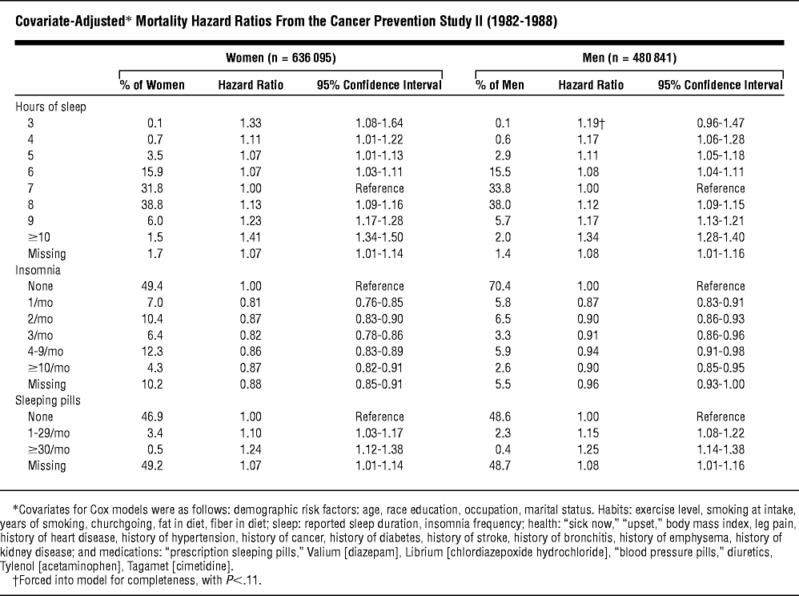I guess this link could interest you: Sleep less, Live longer
From the paper quoted in the above article

Currently, we do not know why sleep exceeding 7.5 hours was associated with excess mortality. Sleep duration in itself may not be a causal factor. Our group has suggested that sleep apnea might be a crucial underlying abnormality
the above is an interesting point. Sleep quality is more than likely a more important issue. Perhaps if a similar study to the above study that is controlled for normal sleep by using a PSG test would be a more appropriate assessment. I know that it may sound dramatic but if you need more than 9 hours sleep a day and suffer from day time sleepiness I'd recommend you have a sleep study done. Just to be sure that you don't have sleep disordered breathing such as sleep apnea. I'm a very healthy individual with none of the risk factors for sleep apnea but I have severe obstructive sleep apnea. Additionally, if you can afford the extensive tests, discuss calculating your optimum sleep time with the sleep lab. Otherwise you can calculate your optimum sleep time at home. You will need a controlled 2 week period. Here's how I would do it;
1. Wash out. (approximately 1 week);
No stimulants a week prior. Eliminate habits that are counter productive to sleep. These include drinking alcohol before bed, sitting in front of a computer screen and so on. Search around and you'll find recommendations of what not to do before bed
2. Normalise (approximetly 1 week);
For 7 days sleep up to 10 hours per night. Such would generally make up for any sleep deficits. Don't use an alarm to wake yourself up before the 10 hours so make sure you go to bed at least 10 hours before you need to wake
3. Calculate (approximately 1 week);
Go to bed at the same time every night for 7 days. Write down the time. Wake up naturally without an alarm but once again don't sleep beyond the 10 hour mark. After you wake up write down the time and calculate how long you slept. After you have completed the 7 days add up the amount of hours you slept for the week and then divide by 7 to get the average (eg. 8.5+7.6+7.8+7.5+.......= 52/7= 7.42) convert that value into hours (eg. 7.42= 7 hours 25 min [60minutes*0.42=25.2]).
Proving that there is no sleep disordered breathing (or any other pathology that would effect sleep) and you control this little experiment as much as possible by eating your normal diet and going to bed at the same time that you would normally then it should give you a rough estimate of how much sleep is optimal for you. Of course if you change or revert back to your lifestyle habits after the test the above value may change. Interestingly, when I was a lot younger and completed the home test I started to wake well before my alarm when off. I would always wake immediately after my 4th REM (6hr45-7hrs15) of the night. Waking up after an REM phase is said to be the best time to wake because it's right at the top of the sleep cycle where most of the brain activity occurs. In comparison to waking up when in stage 4 NREM sleep. Doing that usually means you wake feeling like you've been hit by a truck.

The added bonus of waking after an REM phase are the memories of vivid dreams, unless they are nightmares that you can't deal with. I'm not going to rave about dreams because I've done that somewhere else and I'm starting to sound like a broken record.
Sleep phase alarm clocks such as
AXbo and
SLEEPTRACKER can also be useful for some.
























































